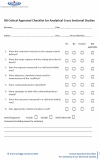Penta- and hexavalent vaccination of extremely and very-to-moderate preterm infants born at less than 34 weeks and/or under 1500 g: A systematic literature review
- PMID: 37076111
- PMCID: PMC10120554
- DOI: 10.1080/21645515.2023.2191575
Penta- and hexavalent vaccination of extremely and very-to-moderate preterm infants born at less than 34 weeks and/or under 1500 g: A systematic literature review
Abstract
Debate regarding vaccinating high-risk infants with penta- and hexavalent vaccines persists, despite their good immunogenicity and acceptable safety profile in healthy full-term infants. We report the findings of a systematic literature search that aimed to present data on the immunogenicity, efficacy, effectiveness, safety, impact, compliance and completion of penta- and hexavalent vaccination in high-risk infants, including premature newborns. Data from the 14 studies included in the review showed that the immunogenicity and the safety profile of penta- and hexavalent vaccines in preterm infants was generally similar to those seen in full-term infants, with the exception of an increase in cardiorespiratory adverse events such as apnea, bradycardia and desaturation following vaccination in preterm infants. Despite recommendations of vaccinating preterm infants according to their actual age, and the relatively high completion rate of the primary immunization schedule, vaccination was often delayed, increasing the vulnerability of this high-risk population to vaccine-preventable diseases.
Keywords: Preterm infants; completion; compliance; concern; hexavalent vaccine; immunogenicity; pentavalent vaccine; safety; vaccination.
Plain language summary
Combined vaccines such as penta- and hexavalent vaccines against multiple childhood diseases are widely used in healthy babies born at term. However, it is still debated whether these vaccines act the same way in babies considered to be high-risk: babies born prematurely at <34 weeks of pregnancy, those with a birthweight of <1500 g or babies with chronic diseases. We did a systematic literature search to find studies on such high-risk babies vaccinated with penta- or hexavalent vaccines; we focused on their antibody levels following vaccination, side effects, and protection from the diseases against which they were vaccinated. We also analyzed whether they were vaccinated on time and with all the doses recommended for healthy full-term babies. We found 14 studies that included premature babies. The results of these studies suggest that premature babies’ immune systems respond to penta- and hexavalent vaccines in largely the same way as those of full-term babies; side effects of penta- and hexavalent vaccines are also mostly similar to those seen in full-term babies. However, side effects like pauses in breathing, slow heart rate or low blood oxygen levels seem to be more common in preterm babies; for safety, these babies should be monitored closely after vaccination. Preterm babies are often vaccinated with a delay compared to the recommended schedule. No studies reported data on protection from the diseases covered by penta- and hexavalent vaccinations in preterm babies. More research is needed on penta- and hexavalent vaccination of other high-risk babies besides those born prematurely.
Conflict of interest statement
MD and VB are employees of GSK, own restricted shares in the company and declare financial/non-financial relationships and activities. LM and PK’s institution received financial support from GSK during the conduct of the research. MK, ISC, PNTN and MLC have nothing to disclose.
Figures
References
-
- World Health Organization . DT-based combined vaccines. World Health Organization. [Accessed 2022 Jul 22]. https://www.who.int/teams/health-product-policy-and-standards/standards-....
Publication types
MeSH terms
Substances
LinkOut - more resources
Full Text Sources
Medical



